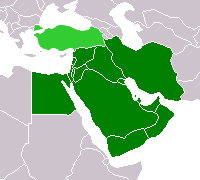As the Middle East navigates through May 2024, the region is embroiled in escalating conflicts, diplomatic manoeuvres, and significant humanitarian crises. Here’s an in-depth look at the key events shaping the region this week.
Escalating Conflict in Gaza
The conflict between Israel and Hamas in Gaza has intensified, drawing widespread international attention and condemnation. The International Court of Justice (ICJ) has ordered Israel to halt its offensive on Rafah immediately, a directive that Israeli officials have dismissed, continuing their military operations unabated. The United Nations has condemned the killing of foreign aid workers in Gaza, calling for a full investigation into the incident.
Meanwhile, humanitarian conditions in Gaza are deteriorating rapidly. Aid shipments have been severely disrupted, with food supplies rotting under the sun on the Egyptian border, leading to dire shortages for the besieged population. Efforts to deliver aid via alternative routes, such as the Karem Abu Salem crossing, are being coordinated by Egypt and supported by the United States.
Diplomatic Responses and International Reactions
Globally, there has been a mix of responses to the ongoing conflict. Italy has pledged to resume funding for the United Nations Relief and Works Agency for Palestine Refugees in the Near East (UNRWA), with most of the funds directed towards providing food in Gaza. In contrast, the U.S. administration faces increasing pressure from human rights groups to halt arms transfers to Israel in light of the ICJ’s ruling.
Saudi Arabia has extended condolences to Iran’s acting president following the death of President Ebrahim Raisi in a helicopter crash, highlighting the complex and often strained diplomatic relationships in the region. This incident has further complicated the political landscape in Iran, where discussions about electing a new president to maintain stability are ongoing.
Protests and Political Unrest
In Tunisia, hundreds have taken to the streets protesting against a wave of arrests under a presidential decree that critics argue is being used to suppress dissent. These demonstrations reflect broader regional discontent with authoritarian governance and the stifling of political freedoms.
As the Middle East continues to grapple with these challenges, the interplay between military actions, diplomatic negotiations, and grassroots movements will significantly impact the region’s future stability and humanitarian conditions.
Further Reading
